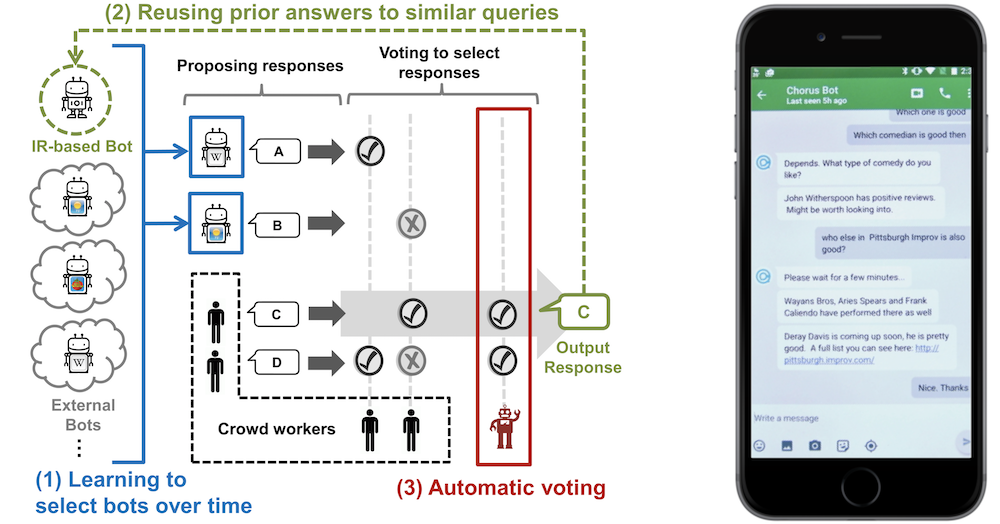
BEST PAPER NOMINATION
Crowd-powered chatbots are robust than current pure AI approach, but can be
slower and more expensive at runtime. We attempted to combine the two
approaches for high quality, low latency, and low cost. We introduce Evorus, a
crowd-powered chatbot that automate itself over time by learning to integrate
AI chatbots, reusing responses, and assess response quality. A 5-month-long
public deployment study shows promising results. You can try talking to Evorus today.
Abstract
Crowd-powered conversational assistants have been shown to be more robust than automated systems, but do so at the cost of higher response latency and monetary costs. A promising direction is to combine the two approaches for high quality, low latency, and low cost solutions. In this paper, we introduce Evorus, a crowd-powered conversational assistant built to automate itself over time by i) allowing new chatbots to be easily integrated to automate more scenarios, ii) reusing prior crowd answers, and iii) learning to automatically approve response candidates. Our 5-month-long deployment with 80 participants and 281 conversations shows that Evorus can automate itself without compromising conversation quality. Crowd-AI architectures have long been proposed as a way to reduce cost and latency for crowd-powered systems; Evorus demonstrates how automation can be introduced successfully in a deployed system. Its architecture allows future researchers to make further innovation on the underlying automated components in the context of a deployed open domain dialog system.
Try Evorus on Google Talk
Overview Video
Media Coverage
- WTAE TV News: Meet the ‘Chorus’ chatbot: Unlike Alexa or Siri, it’s powered by actual people on the other end
- Trib Live: Chatbot developed at Carnegie Mellon uses humans to answer questions AIs can’t
- EurekaAlert!: Crowd workers, AI make conversational agents smarter
- CMU News: Crowd workers, AI make conversational agents smarter
- Presstext: KI-System “Evorus” wird zunehmend eigenständig
Downloads
Citation
1 2 3 4 | |
Bibtex
1 2 3 4 5 6 7 8 9 | |